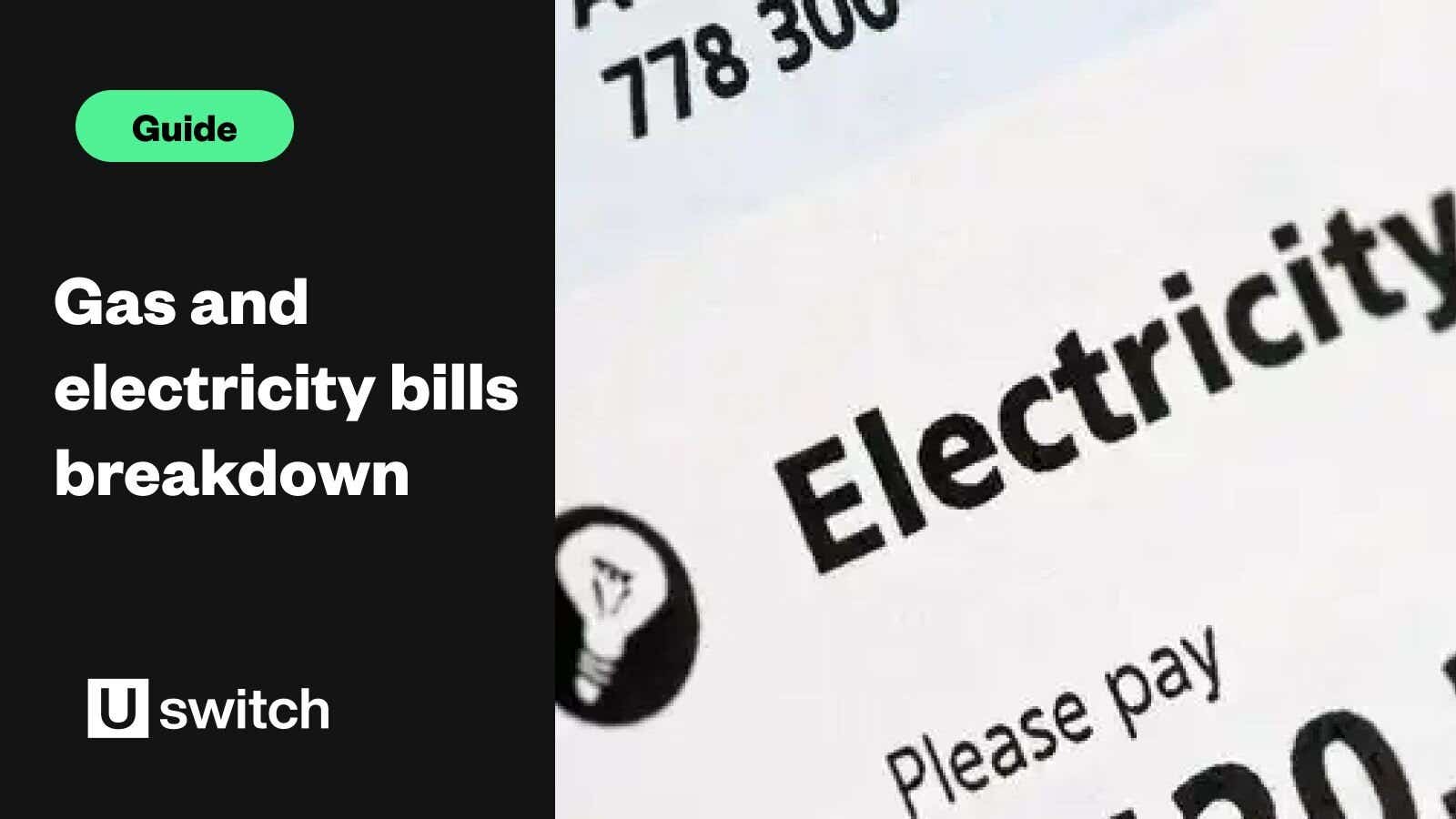What is a utility bill?
A utility bill is the bill you receive for using utilities such as gas, electricity and water.
What's the breakdown of an average utility bill?
A utility bill focusing on electricity or gas is made up of several different components.
Wholesale costs
Wholesale costs are the costs that suppliers pay to electricity and gas producers for the energy they supply customers with.
Wholesale costs can go up or down depending on global conflicts and overall demand (i.e. the lower the demand, the lower the price and vice versa). They usually make up about a third of your total bill.
Network costs
Network costs are the costs that suppliers pay network operators to use their pipes and cables to carry gas and electricity around the country. These costs go towards maintaining and upgrading those systems and networks.
Social and environmental obligation costs
A proportion of your gas and electricity bill is used to subsidise the government's environmental initiatives. Environmental schemes which are subsidised by your gas and electricity bill include:
- Feed-in Tariff scheme (FITs)
- Carbon Emissions Reduction Target (CERT)
- Community Energy Saving Programme (CESP)
- The Renewables Obligation (RO)
- EU Emissions Trading Scheme (ETS).
Operating costs
Operating costs are the costs the energy supplier incurs for the general administration associated with a retail business. These can include running a call centre and other customer service channels, providing meters and sending out bills.
Supplier pre-tax margin
A supplier pre-tax margin is the difference between the payment you make to your supplier and the cost the supplier charges to deliver the energy to you. The pre-tax margin is comprised of some profit and some income that will end up as tax.
VAT
VAT makes up less than 5% of most utility bills.
Other costs
Other costs, such as meter installation and gas storage costs, also comprise small percentages of your utility bill.
How to save money on your utility bill
These energy-saving tips will help you bring your energy bills down as well as reduce your carbon footprint.
Heating
The biggest portion of your energy bill is taken up with heating your home and your water. Follow these tips and you could save a fortune on your heating bills:
- Turn your thermostat down by a single degree. This could save you as much as 10% on your energy bills over the space of a year
- Make sure your home is adequately insulated. Loft and cavity wall insulation may require an initial investment, but could easily save you hundreds a year in heating costs
- If you're on a low income, you may be eligible for an energy efficiency grant to make improvements to your home. Find out if you could be eligible and how to apply
- Try to block any draughts that are coming into your house and make sure you close your curtains to keep the heat in.
In the kitchen
The next largest portion goes towards powering our washing machines, fridges, freezers and cooking appliances. Keep these costs down with these tips:
- Do your washing less frequently. It may sound obvious - but keep the number of wash loads down by making sure the machine is full every time for maximum efficiency
- Use the economy setting on your washing machine. Many washing powders will now work at temperatures as low as 30 degrees, which is enough to effectively wash clothes while also helping your machine run more efficiently
- Dry your clothes outside or on a clothes horse. Tumble dryers use a lot of energy, so if you can dry your clothes for free, that will help keep costs down
- Replace your current fridge and/or freezer with an energy-efficient model. Look out for the energy efficiency stickers on modern appliances. You should also make sure they're kept as full as possible and that the area around them is kept clean so they don't have to work as hard.
Computers, gadgets and electronics
Next up is the amount of energy used by consumer electronics such as DVDs, TVs and computers every year. Bring this cost down with the following tips:
- Don't leave electronics on standby. If you're forgetful, invest in a standby saver - it will automatically cut the power to any electronics left on standby
- Don't charge your gadgets unnecessarily. For example, don't leave laptops and mobile phones charging overnight, as this is a big waste of energy
- Don't leave your computer and related devices on when you're not using them. Make sure speakers/monitors/printers are turned off when you've finished with them.
Lighting
Finally, there is the portion of our bills going towards lighting our homes. The easiest ways to save on your lighting costs are to:
- Buy energy-efficient LED lightbulbs. They last up to 25 times longer than incandescent lightbulbs and each one you swap could save you at least £4 per year
- Turn the lights off behind you when you leave a room and get into the habit of switching the lights off as you move through the house.



